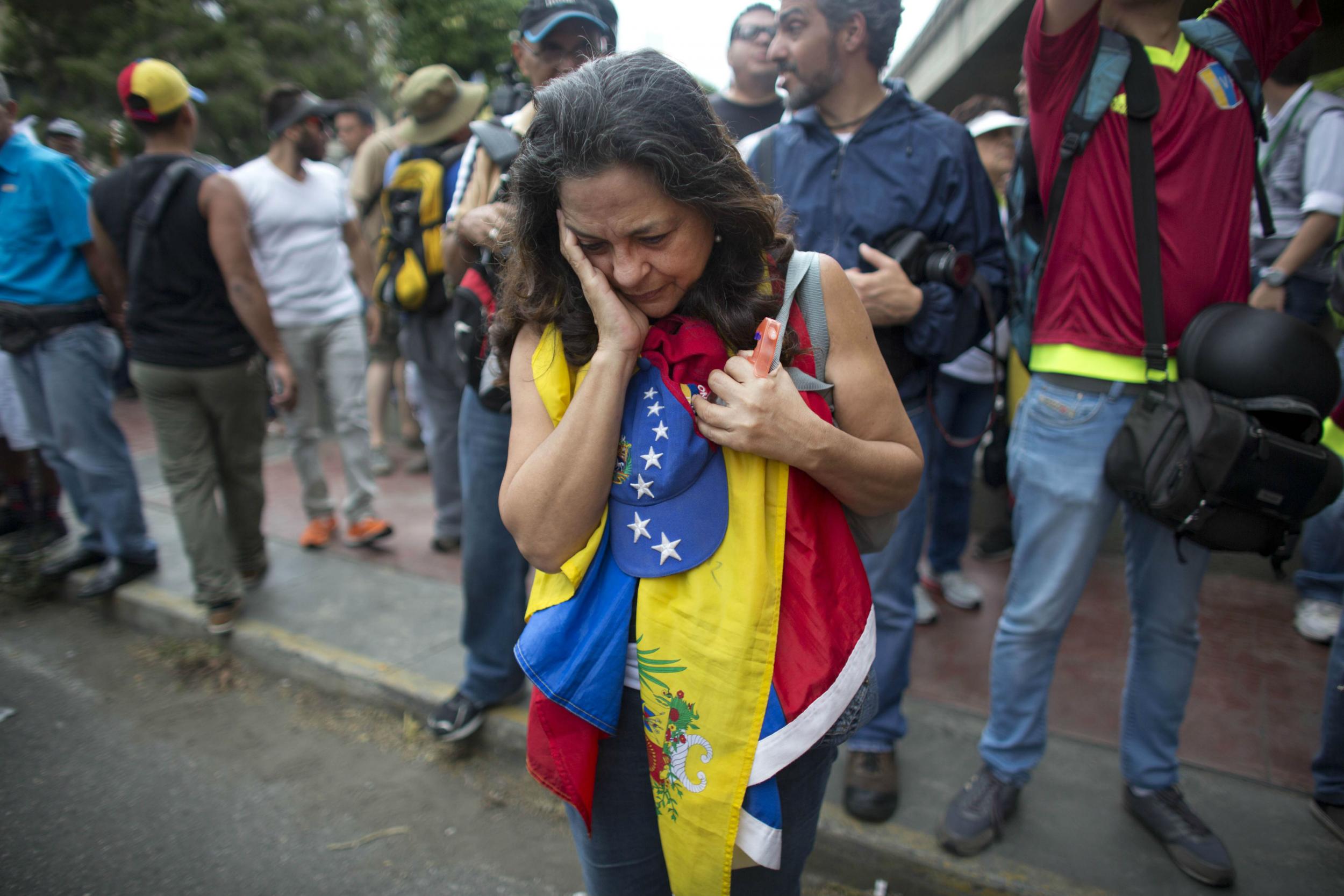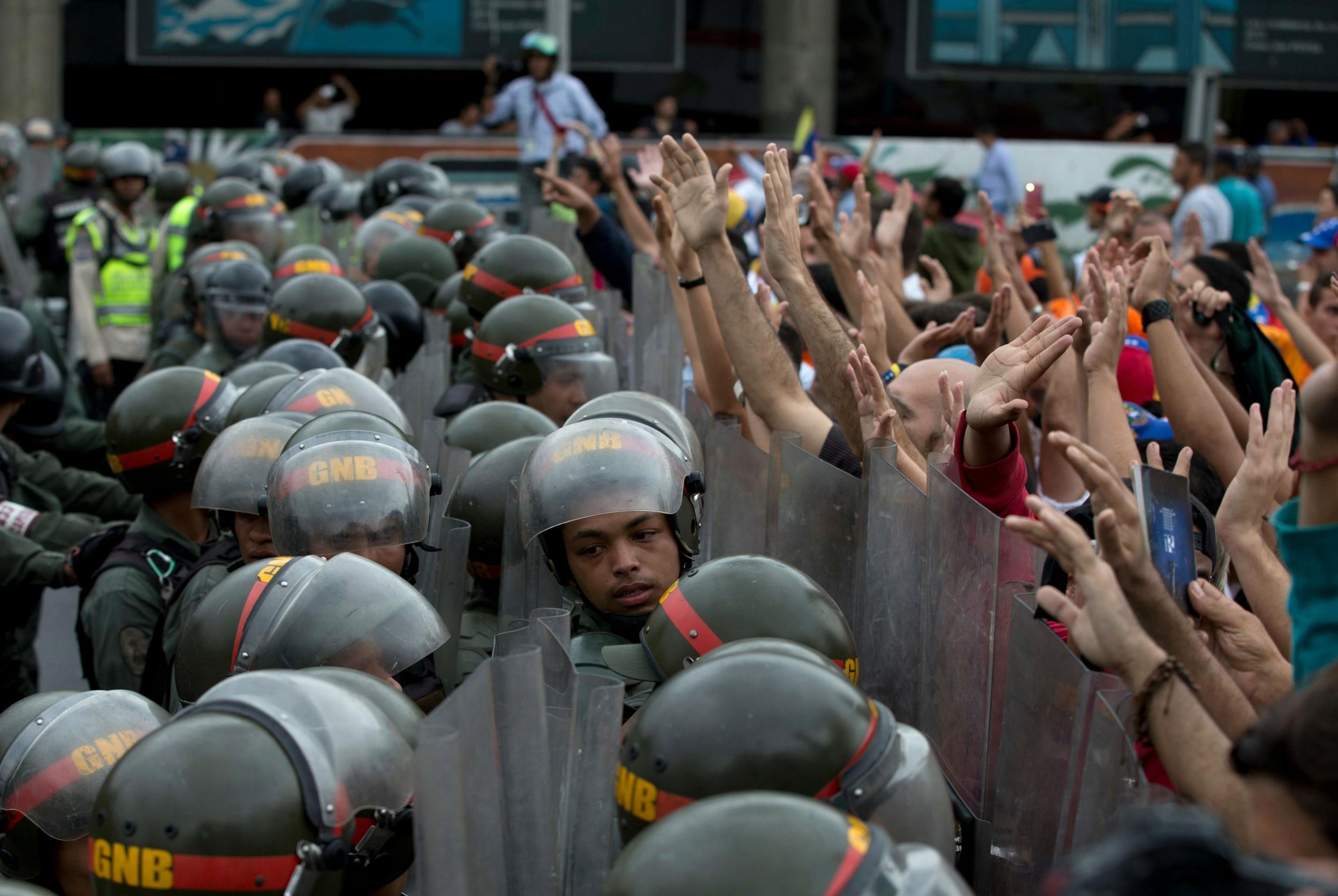Venezuela accuses US of plotting coup as Washington warns of 'imminent collapse'
The two countries have had a difficult history since the election of former president Hugo Chavez

Your support helps us to tell the story
From reproductive rights to climate change to Big Tech, The Independent is on the ground when the story is developing. Whether it's investigating the financials of Elon Musk's pro-Trump PAC or producing our latest documentary, 'The A Word', which shines a light on the American women fighting for reproductive rights, we know how important it is to parse out the facts from the messaging.
At such a critical moment in US history, we need reporters on the ground. Your donation allows us to keep sending journalists to speak to both sides of the story.
The Independent is trusted by Americans across the entire political spectrum. And unlike many other quality news outlets, we choose not to lock Americans out of our reporting and analysis with paywalls. We believe quality journalism should be available to everyone, paid for by those who can afford it.
Your support makes all the difference.The relationship between the US and Venezuela has for many years been nothing less than toxic.
In 2002, then President Hugo Chavez was briefly ousted in a coup by opponents supported by the US. Washington continued to funnel hundreds of thousands of dollars to his critics, while Mr Chavez took to the podium of the UN to accuse George W Bush of being the devil.
Now, President President Nicolas Maduro has extended a state of emergency in the country for another 60 days and accused Washington of plotting against him, as US intelligence has claimed the country is heading for meltdown.
Mr Maduro secured the extension of emergency powers, as unnamed US intelligence officials told reporters in Washington they doubted that the left-wing president would allow a recall referendum this year, despite opposition-led protests demanding a vote to decide whether he stays in office.
The officials told the reporters that Mr Maduro was not likely to be able to complete his term, which is due to end after elections in late 2018, according to Reuters, which was among those briefed by the officials.
On Friday night, Mr Maduro delivered a televised national address in which he directly accused the US of seeing to foment his ouster.
“Washington is activating measures at the request of Venezuela’s fascist right, who are emboldened by the coup in Brazil,” he said.
“We have already seen the image of the oligarchy signing and removing power to the people.”
An economic state of emergency has been in force in Venezuela since January, including rationing of food and other goods. The country is facing economic criris largely because of the crash in oil prices. Critics also accuse the government of failing to tackle corruption.

During the Chavez years, the country was able to invest in extensive social programmes, using the taxes from its oil wealth. It remains a major supplier to the US.
In Washington, the US intelligence officials told reporters they believed a crisis was imminent.
“You can hear the ice cracking. You know there’s a crisis coming. Our pressure on this isn’t going to resolve this issue,” said one official.
Another said: “This is really not the case that the US is rooting for any outcome other than there not be an economic meltdown or social violence. There are reasons for concern that over the summer as Venezuela gives importance to payments on debt over imports that these events could spiral.”
Yet observers of the region point out that the US has a long history of seeking to interfere in the politics of Venezuela, as well as elsewhere in Latin America.
In addition to supporting those who ousted Mr Chavez in 2002, the US poured hundreds of thousands of dollars to his opponents via the so-called National Endowment for Democracy. In 2013, a former US official with a long history of opposing democratically elected governments in Latin America, accused Mr Maduro of “stealing” his election victory.
“Sees or promotes,” the activist and government advisor Eva Gollinger wrote on Twitter, after retweeting an article from a US newspaper with the headline ‘US sees rising risk of coup in Venezuela.’
Mark Weisbrot, a regional expert with the Centre for Economic and Policy Research in Washington, confirmed that Venezuela was suffering from economic problems, though perhaps not as badly as the International Monetary Fund predicted. He said that last year, inflation stood at 180 per cent.
And yet he questioned the motives for unidentified US intelligence officials briefing Americans reporters on the issue. "The US has had a policy of regime change in Venezuela for at least 15 years," he said. "This is part of its strategy. They are saying this to threaten and destabilise the country."
This week, Venezuela has reportedly seen people stealing flour, chicken and even underwear as looting increased. Soldiers fired tear gas at stone-throwing protesters on Wednesday as Venezuela's opposition marched.
Mr Maduro has sworn he will not be forced out before his term expires in 2019 and accuses the opposition of seeking a coup against him to destroy the socialist legacy of his predecessor.
Join our commenting forum
Join thought-provoking conversations, follow other Independent readers and see their replies
Comments